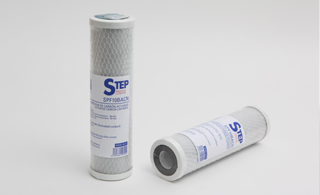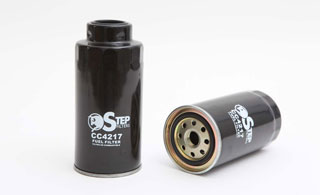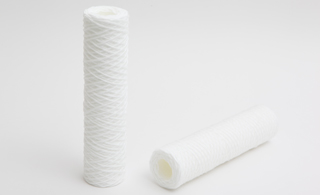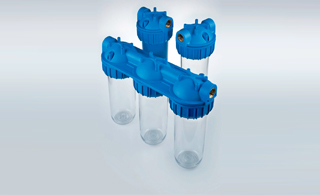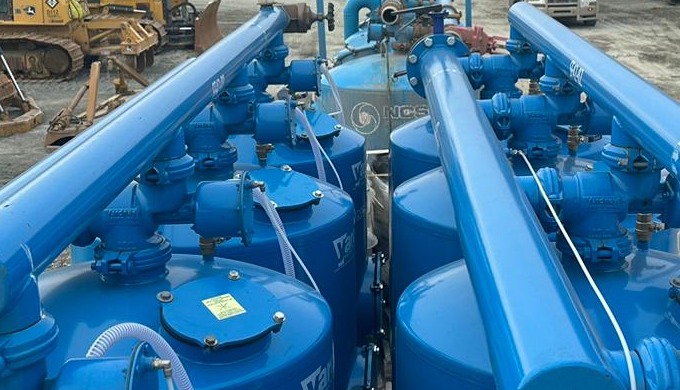
Servicio
Dewatering
In a short explanation Well pointing performed by NCS Fluid Handling Systems is:
Well point dewatering is a method used to remove water from the ground around a construction site. It is commonly used in excavation work, foundation construction, and other applications where water needs to be removed from the site in order to create a dry work area.
Well point dewatering works by creating a series of small wells or "points" in the ground around the construction site. These wells are connected by a header pipe, which collects water from each of the wells and transfers it to a discharge point outside the work area.
Each well is fitted with a screen that prevents soil particles from entering the well while allowing water to pass through. The well points are installed to a depth below the water table, so that the water level in the well is lower than the water level in the surrounding soil. This creates a negative pressure in the well that draws water from the soil and into the header pipe.
The water is pumped from the header pipe to the discharge point, which can be located at a distance from the construction site. The discharge point must be located in a location that meets all local and federal regulations, such as a retention pond or a municipal sewer system.
Well point dewatering is an effective way to remove water from the ground because it allows for the controlled and efficient removal of water from a specific area. This helps to minimize the impact of construction activities on the surrounding environment and to prevent soil erosion, which can negatively affect the stability of the construction site.
In conclusion, well point dewatering is a useful tool in construction applications where water needs to be removed from the ground in order to create a dry work area. It works by creating a series of small wells that draw water from the soil, which is then transferred to a discharge point outside the work area. Well point dewatering is an effective and efficient way to control water levels and minimize the impact of construction activities on the surrounding environment.
Precio de Servicio
Ver más información
Categoría de Servicio
Visita la web
Productos y servicios recomendados
-
-
Los elementos de carbón activado Step Process Filtration están disponibles con carbón activado en forma de bloque o granular, ambos con alta eficiencia frente a olores, sabores y trazas orgánicas. Gracias a su construcción se evitan posibles fugas, canalizaciones o bypass. Asimismo, una prolongada exposición del líquido al carbón activado, garantiza una amplia reducción de cloro. Su construcción mediante polímeros hace que sea compatible con la mayoría de agentes químicos. PRINCIPALES VENTAJAS Alta calidad, eficiencia y rendimiento. Compatibilidad con un gran número de agentes químicos. Capacidad para grandes caudales. PRINCIPALES INDUSTRIAS DE APLICACIÓN Empresas alimenticias. Farmacéuticas. Químicas. Petroquímicas. Cosméticas. Tratamiento de aguas.
-
Filtros de combustible Step Filters según forma: Filtros de combustible cilíndricos, blindados metálicos y de plástico, de formas especiales (cúbicos, asimétricos, bayoneta, etc.
-
Los cartuchos prensados Step Process Filtration están fabricados mediante una tecnología de densidad progresiva, que permite una óptima filtración en profundidad y, en consecuencia, un aumento en la capacidad de retención de contaminantes. De este modo, se mejora el coste de operación y se alarga la vida útil del elemento. PRINCIPALES VENTAJAS Alta calidad, eficiencia y rendimiento. Densidad gradual para una retención de partículas máxima. Capacidad para grandes caudales con baja pérdida de carga inicial. Compatibilidad con la gran mayoría de agentes químicos, gracias a la composición de polipropileno. PRINCIPALES INDUSTRIAS DE APLICACIÓN Empresas alimenticias. Farmacéuticas. Químicas. Petroquímicas. Cosméticas. Tratamiento de aguas.
-
